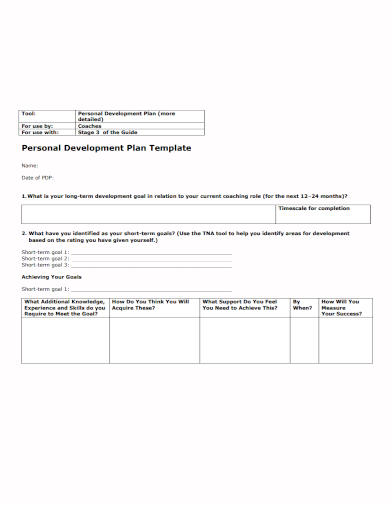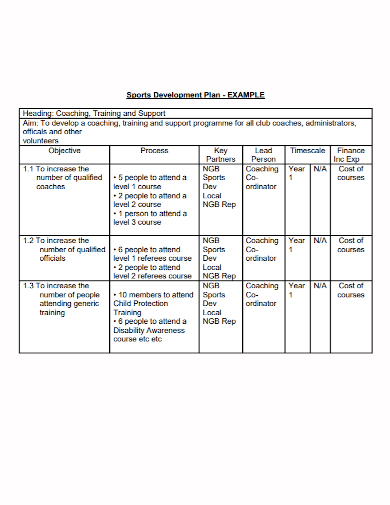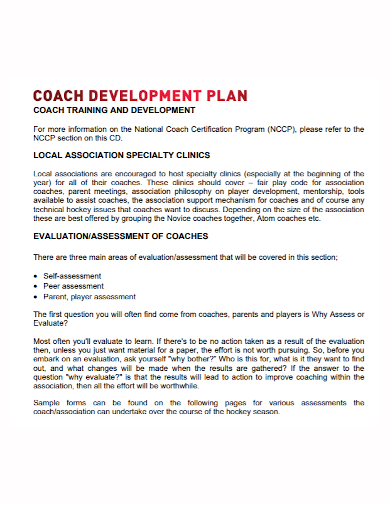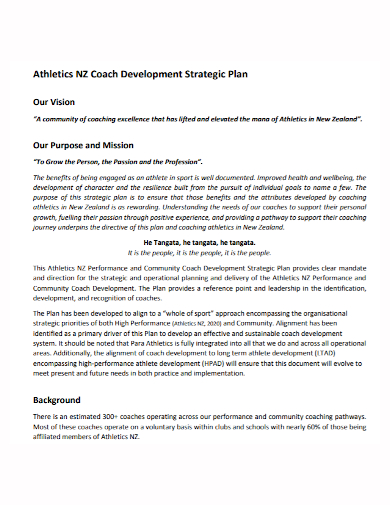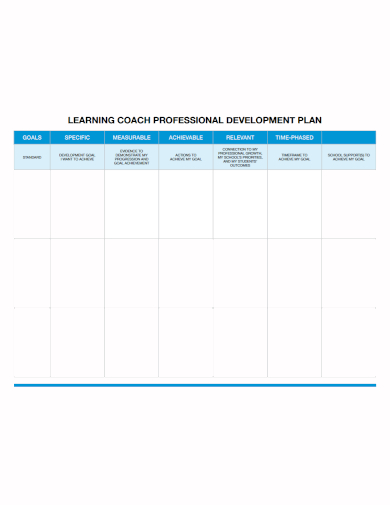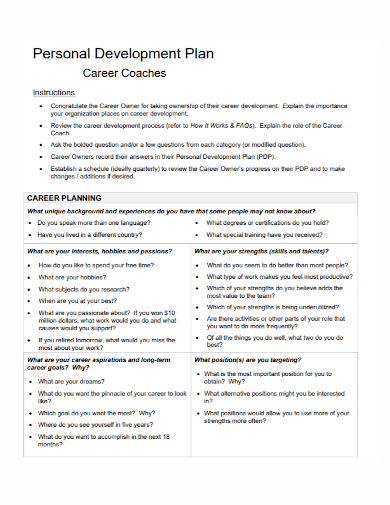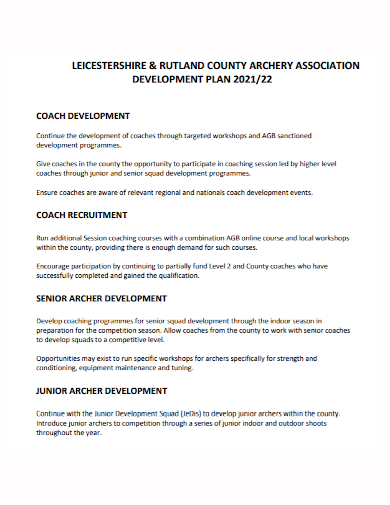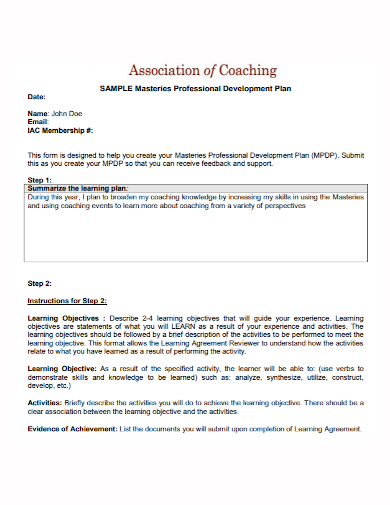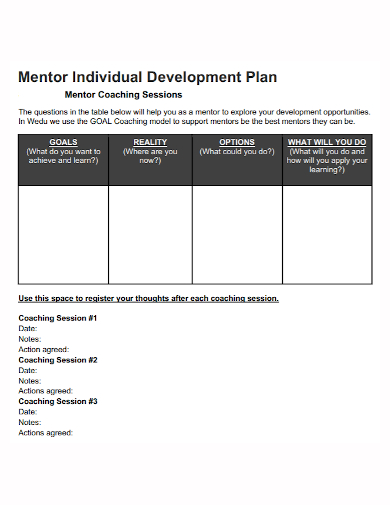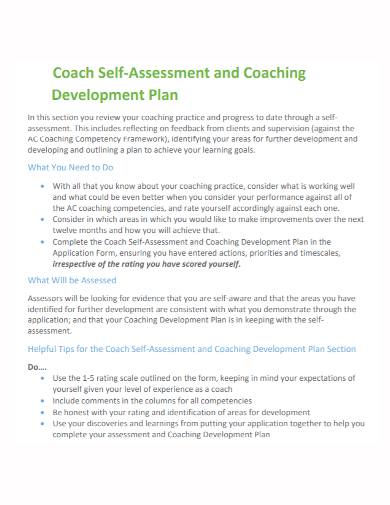Coaches should have a “Coaching Development Plan” since skill development does not happen by chance. A coach should do this whether or not they are pursuing a “career” as a coach – the term “professional” refers to both how they approach coaching and whether or not they are paid to coach. We know that many students want stable income sources in addition to other benefits such as stronger personal resilience, better professions or relationships, or higher confidence. We all know that having a better understanding of yourself and how you react to events can help you make better decisions. Coaches who plan are the ones who are most likely to succeed. To ensure that the path and training you follow are aligned with your final goals, we strongly advise that you establish your plan before beginning your coach training.
What is a coaching development plan? The Coach Development Plan gives you the chance to think about who you could be as a coach, how you learn best, and what you want to accomplish, and when. Our suggestion is to keep in mind that nothing is set in stone. Your plan is merely a guide, and it may change as your coaching progresses.
10+ Coaching Development Plan Samples
1. Coaching Development Plan Template
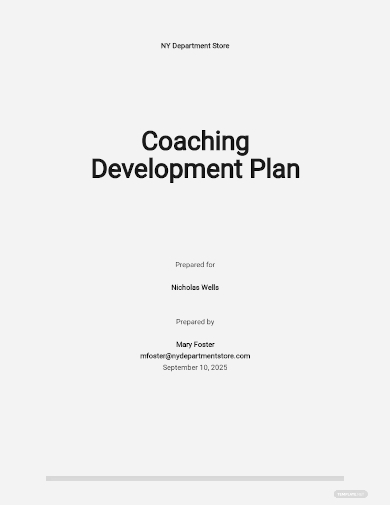
2. Coaching Personal Development Plan
3. Coaching Sports Development Plan
4. Coaching Training Development Plan
5. Coaching Development Strategic Plan
6. Coaching Professional Development Plan
7. Coaching Career Development Plan
8. Coaching Association Development Plan
9. Coaching Membership Development Plan
10. Coaching Individual Development Plan
11. Coaching Self-Assessment Development Plan
Aside from retaining credibility with customers, a Coach Development Plan (CDP):
• Makes the coach more aware of how they are evolving in relation to the coaching industry and the demands of their customers (what was once considered “excellent” now appears to be increasingly average).
• Assists in maintaining the humility required for effective mentoring.
• Offers a diverse range of subjects for thought and presentation to supervisors.
• Focuses and directs the growth of coaching abilities, practice, and philosophy.
Developing a Plan
What do most coaches do?
Coaches should:
- In all parts of the coach’s role, evaluate their strengths while also identifying places for improvement. This review can be aided by soliciting feedback from assistant coaches, players, and coaching colleagues.
- Find experiences that will help them improve their coaching abilities. This could be something from their personal lives (for example, being involved in the preparation of plans at work can assist the coach in preparing plans for their teams); or it could be something from their professional lives (for example, being involved in the preparation of plans at work can assist the coach in preparing plans for their teams).
- Consider the experiences that impacted the lives and successes of other coaches and leaders as you read their stories. This isn’t done so they may copy what another successful coach has done or the path they’ve taken. Instead, it’s to encourage kids to think laterally about their experiences, which are undoubtedly influencing them, and to consider what experiences might be useful in the future.
Coaches should also consider these questions:
- What knowledge and skills do you already have?
- What does the future hold for you as a coach?
- Which customers are the best fit for you?
- What is the best coaching approach or process for you?
- What industries or occupations do you think you’d be best suited for?
- What kind of training program would be the most beneficial to your learning style?
FAQs
What competencies do coaches have and what do they need to improve?
- Technical expertise — how current is the coach’s expertise? (relative to the level they are coaching)
- Communication
- Basic budgeting abilities are necessary in the financial world.
- Setting objectives, accomplishing goals, and revisiting goals are all part of the planning process.
- Building relationships – how well does the coach convince individuals to “come on board”?
- Conflict resolution
- Making difficult choices
- Tension management and relaxation — does the coach “pass on” his or her stress to the players?
What are the practical ways of keeping the momentum of a coaching development plan?
• Regularly reviewing it with peers and supervisors
• Establishing knowledge acquisition targets on a monthly basis (e.g. reading, attending courses or professional development events)
• Participating in online or face-to-face learning groups with peers
• At least once a quarter, set a developmental goal for yourself.
• Experimenting with alternative tactics that may expand your repertoire with the permission of your clientele (but always prioritizing their needs over yours)
It’s self-evident that a coach who doesn’t invest time and effort in their personal growth will limit their success with clients. Coaches who take their own growth seriously, on the other hand, are well prepared to form and sustain a meaningful developing partnership with their customers – the most powerful teachers of all!
Related Posts
FREE 10+ Sports Action Plan Samples
FREE 10+ School Leadership Development Plan Samples
FREE 10+ Leadership Report Samples
FREE 10+ Strategic Training Plan Samples
FREE 10+ Individual Development Plan Samples
FREE 10+ Leadership Development Action Plan Samples
FREE 9+ Training Contract Samples
FREE 9+ Performance Development Plan Template
FREE 4+ Coaching Skills Checklist Samples
FREE 11+ Staff Development Plan Templates
FREE 10+ Cricket Club Development Plan Samples
FREE 10+ Sports Coaching Proposal Samples
FREE 10+ Employee Development Plan Templates
FREE 10+ Mentoring Action Plan Samples
FREE 8+ Training Plan Samples

